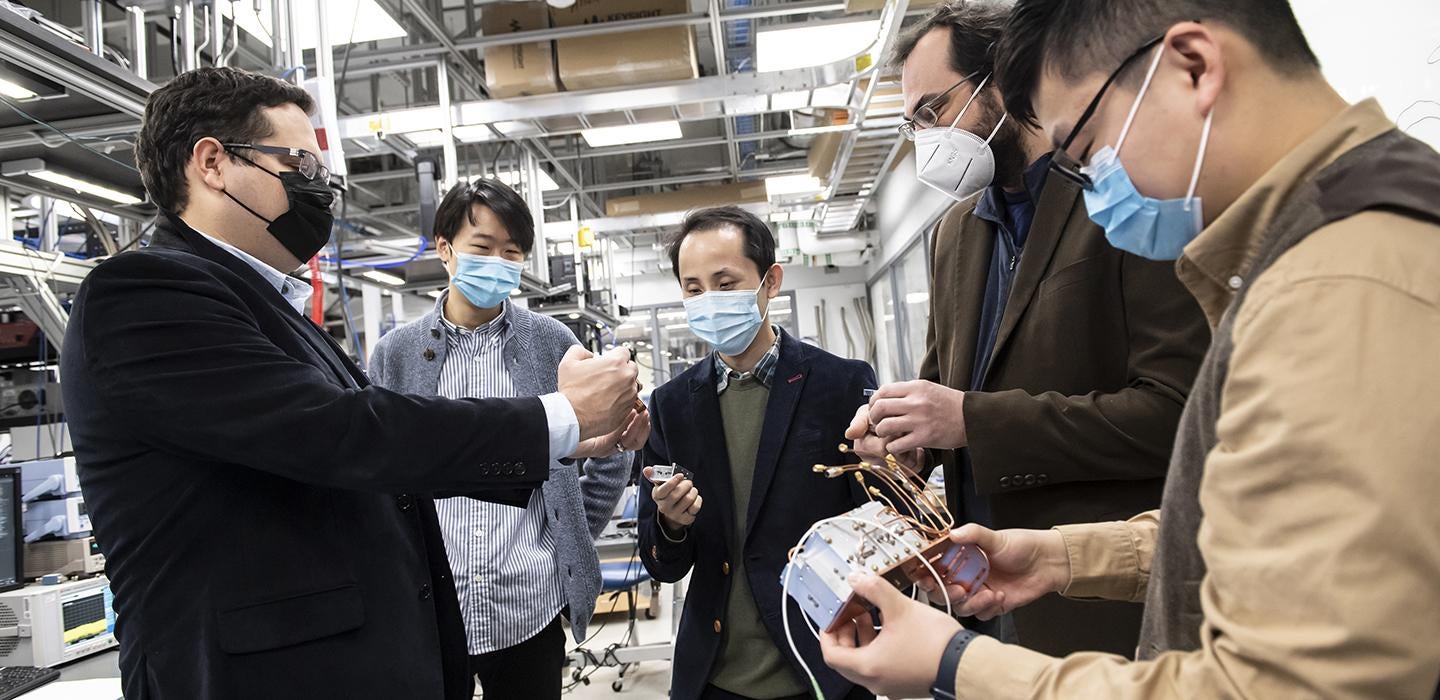
Subscribe to Pittwire Today
Get the most interesting and important stories from the University of Pittsburgh.Quantum physics can sometimes seem almost metaphysical, but even the field that introduced spooky action at a distance is grounded in the tangible world of computers, networks and sensors.
To usher in the next era of quantum technology, researchers need specialized, made-to-spec equipment that can crunch data faster and bring the field farther.
In a show of Pitt’s dedication to lead the way, the University’s Strategic Advancement Fund has approved its first loan, $11.6 million, to support the establishment of the Western Pennsylvania Quantum Information Core (WPQIC). This cross-disciplinary, multi-institution effort will position the University and its partners at the forefront of the field.
More than 10 years ago, Pitt established the Pittsburgh Quantum Institute, a collaboration among faculty from Pitt, Carnegie Mellon University and Duquesne University. Last year the institute established its first agreements with industry partners in service of commercialization.
“The core will allow the entire region to ‘level up’ to a more comprehensive and integrated platform for quantum experimentation across a range of fundamental physics and emerging applications,” said Rob A. Rutenbar, Pitt’s senior vice chancellor for research.
Pitt is at the leading edge of quantum education, offering one of the first undergraduate degrees in the field. Now it will be a hub where students, researchers and industry partners come together to forge the underpinnings of a stronger quantum information science and engineering (QUISE) discipline.
“The core is a natural progression for Pitt, which has been dedicated to cutting-edge quantum information science and engineering research,” said Rob Cunningham, vice chancellor for research infrastructure. “This is the natural next step.”
To continue to lead, however, researchers need specialized equipment: correlated photon counters, machines that allow for work to be done in a vacuum and refrigerators that can keep temperatures just a touch above absolute zero.
There are many ways to build this quantum hardware.
“What unites all these disparate techniques is that they are hard,” said Michael Hatridge, a physics professor in the Kenneth P. Dietrich School of Arts and Sciences, a quantum-computer builder and the inaugural director of the WPQIC.
“The core's job is to make them merely ‘super tough.’ By bringing together these amazing, modern instruments, we should be able to make big strides in quantum research,” Hatridge said.
The WPQIC will support faculty by providing this state-of-the-art instrumentation and adding staff. These expanded capabilities will allow Pitt to continue to grow its program offerings in many areas of QUISE, providing a unique opportunity for all students, researchers and faculty to use tools most researchers can’t regularly access.
Quantum science is not solely an endeavor for the physicist, and so investments will be made in existing facilities in the departments of chemistry and physics in the Dietrich School, the Swanson School of Engineering and the School of Computing and Information. A new, central facility will enable even more collaborative research.
The WPQIC embodies the core of the University’s purpose as outlined in its strategic initiative, the Plan for Pitt, by helping provide the best opportunities for students and staff while bringing to the region an industry that will only continue to grow. This vision — one of new industry ecosystems and the opportunities they bring — is shared by Mayor Ed Gainey.
“Pittsburgh has been able to thrive in large part because of its ability to embrace cutting-edge technology,” said Gainey. “That’s why I support the Western Pennsylvania Quantum Information Core at the University of Pittsburgh. It will help develop a quantum-ready workforce primed to make novel discoveries and develop new industries that will benefit everyone in the region.”
As more projects are supported, the University and the region will continue to see growth.
“As the first initiative to receive [this strategic funding], the Western Pennsylvania Quantum Information Core reflects the University’s commitment to Pitt’s leadership in quantum information science,” said Senior Vice Chancellor and Chief Financial Officer Hari Sastry. “It is an excellent example of how the University can use the fund to invest in strategic initiatives that will enhance Pitt’s strong research reputation.”
— Brandie Jefferson, photography by Aimee Obidzinski


